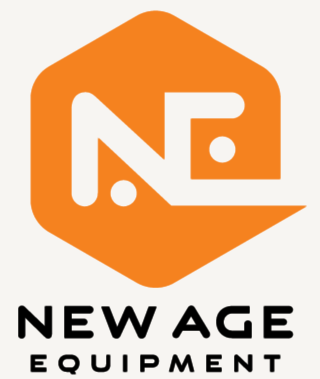Cedarville University News - March 16
- Cove Unity Is Key to Student Success
- Industrial and Innovative Design, Engineering, and Marketing Students Assist in “Bike of the Future”
- Pharmacy Professor Focuses on Correcting Medication Misuse
- Pharmacy Students Focus on Ohio's Opioid Problem
Cove Unity Is Key to Student Success
Cedarville University’s academic enrichment center, The Cove, has a unique team that works together seamlessly to provide the best services to students. For the approximately 1,500 students who benefit from The Cove’s services each year, that spirit of cooperation and common purpose is evident from the moment they walk in the door. The Cove staff members know each other and their jobs well enough to easily direct students where their needs can be met best.
“Unity is at the foundation of everything we do,” said Kim Ahlgrim, director of The Cove, who has been at Cedarville 28 years. “It starts with hiring the right people and building a team. We’re a connected team: We care about each other’s lives. We work hard and collaborate well. We walk through good and hard times together and speak truth to one another. It’s a healthy working environment.”
The Cove staff carries on many fun traditions to maintain togetherness, such as Christmas shopping in Columbus, a Christmas breakfast at Clifton Mill, a fall retreat with a coastline theme, coffee breaks at Rinnova in the Stevens Student Center, bonding at department meetings and praying for each other.
“We want students to feel welcome in a place where we not only care for one another, but we also care about them, their academic struggles — their stories,” said Marcy Van Meter, disability compliance coordinator at The Cove, who has spent five years at Cedarville.
“We respect each other. We are a unified team, a family,” said Barbara Jenista, adjunct instructor and learning specialist at The Cove, who has served 16 years. “This awareness of the strengths and expertise of the people on our team allows us to learn from each other, sharing what we are learning to the benefit of our students.”
“The unity here at The Cove allows us to put all our efforts into helping students succeed,” said Monica Bowen, testing coordinator at The Cove the last 11 years.
“We all work together for the same reason: We love what we do, we truly are passionate about helping college students succeed and we just really, really all love each other,” said Deidre Sizer, who has spent six years as the tutoring and office coordinator at The Cove.
“The way that The Cove staff love one another, the Lord and the students they serve has showed me that the gospel can and must influence all of life,” said Bekah Brewer, support for online students intern, who has spent two semesters at The Cove.
“The spirit here comes from the Lord,” said Ahlgrim. “The Cove belongs to the Lord. It’s not about us.”
Industrial and Innovative Design, Engineering, and Marketing Students Assist in “Bike of the Future”
Students from Cedarville University’s industrial and innovative design, mechanical engineering and business programs, are working to create a high-end, personal mobility device – a sustainable e-bike made with a wood frame. They will roll out their creation during the North American Handmade Bicycle Show (NAHBS) March 10-12 in Salt Lake City, Utah.
 Building the Bike of the Future
Building the Bike of the Future
E-bikes are a new trend among bicycle riders. An e-bike comes equipped with a battery and motor, which can assist the rider in movement. The bike can function as a normal bike, but it can also be fully or partly operated by the motor.
The three teams are creating a bike with a wooden frame, rather than a metal one, along with Jay Kinsinger, an associate professor of mechanical and biomedical engineering at Cedarville and a world class wooden bike craftsman. Alex Camacho, associate professor of marketing, and a team of business students, are collaborating with Kinsinger to develop the marketing plan.
The idea for the e-bike project originated with Kinsinger, who has been building award-winning wooden bikes for the past several years. After being elected to an entrepreneurial board last year, Kinsinger saw the opportunity for collaboration between engineering, business, and design students. The bike is the capstone project for six senior engineering students.
“This is the first capstone project with an emphasis in collaboration between majors,” said Kinsinger. “It’s a very open-ended project. There’s no answer in the back of the book for this one.”
“Each of our three programs – engineering, design and business – are interested in innovation and creating 'real-world' projects to enhance the student experience, but each of our disciplines bring something diverse and unique to the process,” said Jim Stevenson, president of the International Center for Creativity (ICC) and supporting instructor of industrial and innovative design for Cedarville students.
Trayton Ojala, industrial designer and project specialist at ICC and a 2014 Cedarville graduate, led the design aspect of the project. “The project teaches the students to lean on the expertise of others and to communicate outside of their own discipline – both of which are extremely important when trying to get a product to market with efficiency,” he said.
ICC students presented the final design concept on October 21, engineering students are preparing to build the bike and business students from are looking for ways to market and sell it. One of the first places this will be tested is NAHBS.
“We’re going to check the demand and interest,” Kinsinger said. “I’m looking for orders.”
Kinsinger explained that e-bikes are huge in Europe and Asia, and he sees a great potential market in the United States. “You still pedal, but the bike helps you,” he said. “The harder you push, the more it helps. In Europe, you see 70 and 80-year-olds cruising along on these.”
Pharmacy Professor Focuses on Correcting Medication Misuse
 With more than 700,000 emergency room visits each year because of incorrect medication use, Andrew Straw, Pharm.D., assistant professor of pharmacy practice at Cedarville University, is doing something to help solve this epidemic. That’s why he has introduced Medication Therapy Management (MTM) at the Rocking Horse Community Health Center (RHCHC) in Springfield.
With more than 700,000 emergency room visits each year because of incorrect medication use, Andrew Straw, Pharm.D., assistant professor of pharmacy practice at Cedarville University, is doing something to help solve this epidemic. That’s why he has introduced Medication Therapy Management (MTM) at the Rocking Horse Community Health Center (RHCHC) in Springfield.
MTM seeks to educate patients on the proper use of medication, optimize drug therapy and improve patient outcomes. As a result, Straw believes fewer people will require an emergency room visit.
“Medication Therapy Management is vital because it speaks to the importance of safe medication use,” said Straw. “In many cases, the patient will not get this type of care from anyone else due to accessibility, time constraints and knowledge limitations. The pharmacist is uniquely positioned to fill this gap in the health care team.”
Typically, Straw will make sure his patients are taking their medication as prescribed and verify if they are following proper health and wellness guidelines. He also checks for negative reactions to the medications.
Part of Straw’s role in MTM includes anticoagulation, or managing medication for patients who are at risk for blood clots, certain heart conditions or stroke. Blood that is not clotting properly because of medication can result in dangerous outcomes that range from excessive bleeding to blood clots in the legs or lungs.
For the last three months, Straw has focused primarily on diabetes management.
“I work one-on-one with patients to get to know their history with diabetes, what medication they’ve taken, what they’re taking now and how they feel as a result” said Straw. “I’ve learned that when you give patients that one-on-one time from week to week, you begin to build a relationship of trust, which completely empowers them.”
What drew Straw to the area of diabetes was the role and expertise he could bring as a pharmacist in a clinical setting.
“Diabetes has so many medications to choose from, that it requires careful balance of many factors, and personalizing each regimen to uniquely fit the patient I’m treating,” said Straw. “This role requires a lot of personal connection and collaboration, which is important to me as a pharmacist.”
RHCHC is now an Advanced Pharmacy Practice Experience (APPE) rotation site for students who are in their fourth year of the professional pharmacy program at Cedarville.
Professional pharmacy students have collaborated with Straw to write the original medication management protocol now implemented at RHCHC. The protocol lays out the responsibilities of the pharmacist, algorithms to change medication, treatment goals and steps to get patients back on track if their medication has not been taken properly.
Looking ahead, Straw plans to stay at the clinic and expand his reach as a pharmacist. His ultimate goal is creating a service linking his role at RHCHC and Springfield Regional Hospital, where he also works.
“The university is providing the clinic with many resources, and I think this reflects back on the drive we have to care for the community,” said Straw.
Pharmacy Students Focus on Ohio's Opioid Problem
At a time when the United States is facing a growing opioid epidemic, and Ohio has become one of the most highly affected states with an estimated 200,000 addicts,
Cedarville University students are working to make a difference.
Students from Cedarville’s School of Pharmacy are visiting local middle and high schools to educate students on drug abuse through a student-led initiative called Generation Rx. The initiative has experienced steady growth since its founding in 2014, and students now visit several different schools in the Miami Valley area, completing about 40 presentations each semester.
The students will spend the day at Bellbrook Middle School on Friday, March 17. They will talk with students beginning at 7:30 am and conclude at 2:30 pm.
One of the group’s goals is to increase the number of people they can influence, explained Samantha Yates and Rachel Bull, third-year professional pharmacy students in Cedarville’s Doctor of Pharmacy program and co-chairs of Generation Rx. They have seen that happen this year as Generation Rx has grown beyond local schools to include Families of Addicts (FOA) support groups and H.O.P.E. Ministries, an organization that supports and trains at-risk youth in the Miami Valley area.
While participating in the initiative helps them fulfill required service learning hours for the pharmacy program, for Yates and Bull, the greatest benefit of Generation Rx is that they are able to address the problem of drug abuse at an early age.
With one in nine heroin overdoses across the U.S. taking place in Ohio, Yates and Bull see a real need for Generation Rx to counter the epidemic through educating students about drug abuse. They also recognize the influence they have as college students talking with younger students and setting a positive example for them.
“What I really appreciate about Generation Rx is that it gives us the opportunity to educate teenagers from more of a peer level,” Bull explained. “With us being in our early 20s and talking to 15-18 year olds, I think they’re a lot more receptive to hearing what we have to say.”













